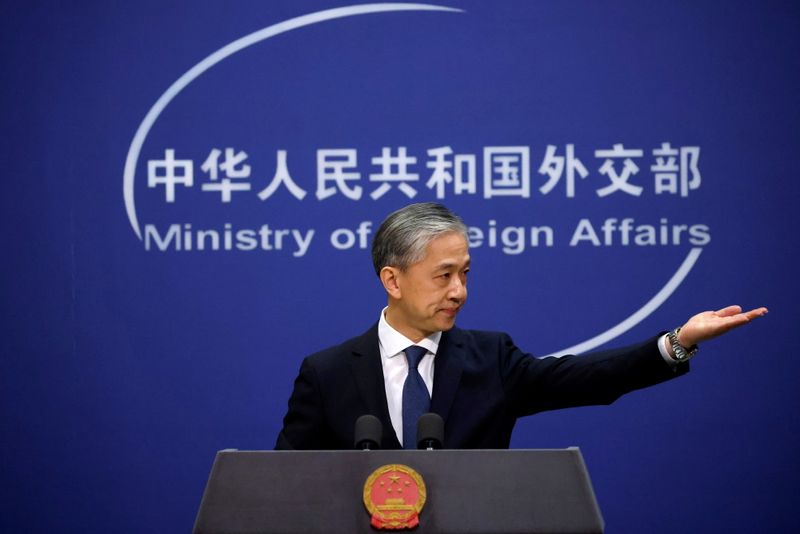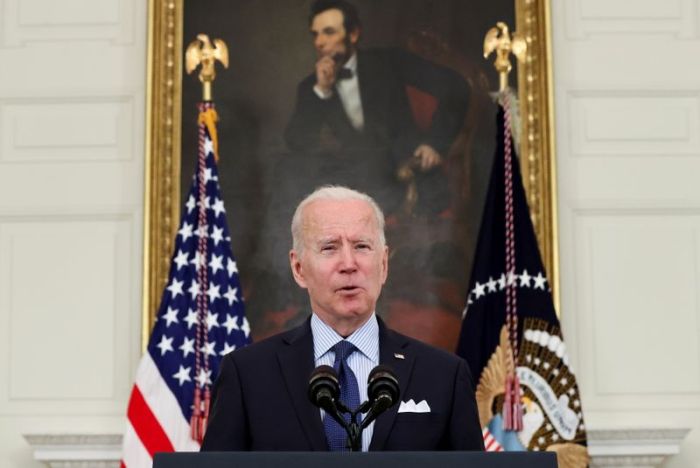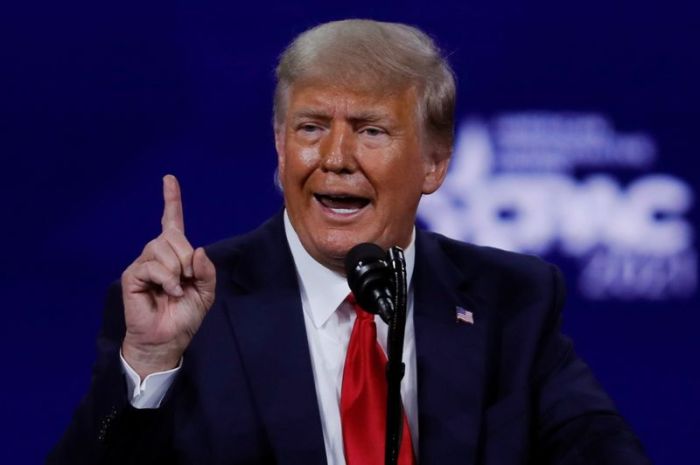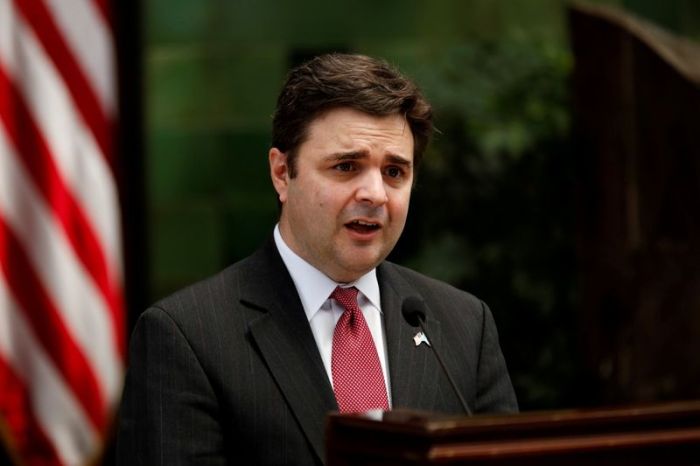BEIJING (Reuters) -China condemned on Thursday a joint statement by G7 foreign ministers that expressed support for Chinese-claimed Taiwan and cast Beijing as a bully, saying it was a gross interference in China’s internal affairs.
G7 foreign ministers said in a communique after a London summit that China was guilty of human rights abuses and of using “coercive economic policies”, which the G7 would use collective efforts to stop.
In an unusual step, the G7 also said they supported Taiwan’s participation in World Health Organization forums and the World Health Assembly – and expressed concern about “any unilateral actions that could escalate tensions” in the Taiwan Strait.
Speaking in Beijing, Chinese Foreign Ministry spokesman Wang Wenbin condemned the statement saying it made “groundless accusations” that were a gross interference in China’s internal affairs.
“This is the wanton destruction of the norms of international relations,” he said.
The G7 as a group should take concrete action to boost the global economic recovery instead of disrupting it, he added.
Wang also attacked G7 countries for hoarding COVID-19 vaccines and having a “wishy-washy” stance towards helping other countries.
“They should not criticise and interfere in other countries with a high-and-mighty attitude, undermining the current top priority of international anti-pandemic cooperation,” he said.
China regards Taiwan as its own territory and opposes any official Taiwan representation on an international level. China has also stepped up military activities near Taiwan in recent months, trying to assert its sovereignty claims.
The G7 statement was warmly received in Taipei, where the government said this was the first time the foreign ministers had mentioned the island in their joint communique.
Taiwan’s Presidential Office thanked the G7 for its support.
“Taiwan will keep deepening the cooperative partnership with G7 member countries, and continue to contribute the greatest positive force to global health and people’s well-being, as well as the peace, stability, and prosperity of the Indo-Pacific region,” said spokesman Xavier Chang.
(Reporting by David Kirton; Writing and additional reporting by Ben Blanchard in Taipei; editing by John Stonestreet, Robert Birsel)

























